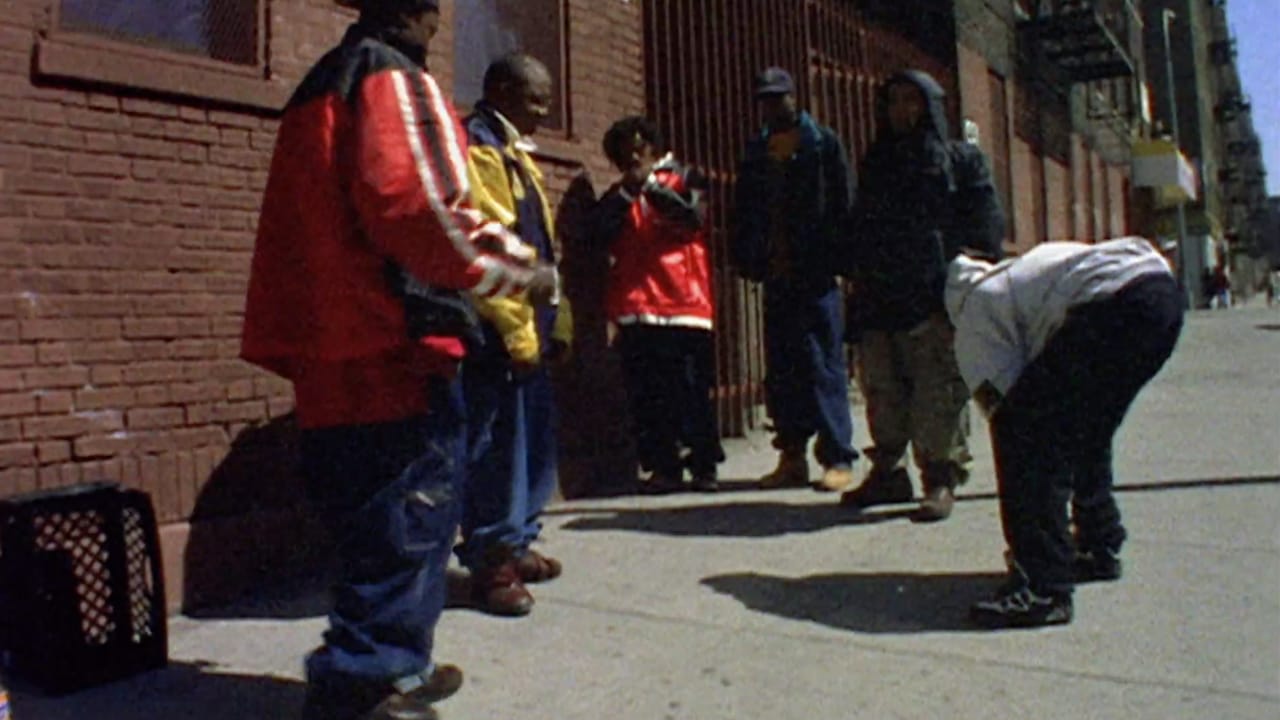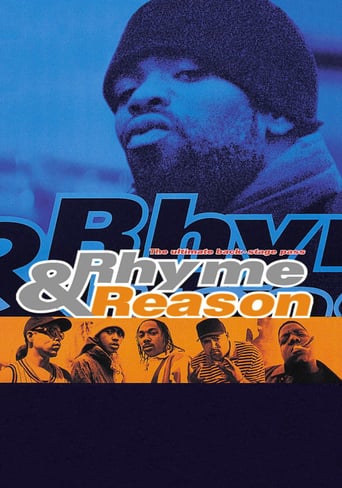Grimossfer
Clever and entertaining enough to recommend even to members of the 1%
Edwin
The storyline feels a little thin and moth-eaten in parts but this sequel is plenty of fun.
Aspen Orson
There is definitely an excellent idea hidden in the background of the film. Unfortunately, it's difficult to find it.
Cristal
The movie really just wants to entertain people.
helinga
I remember when I watched this one for the first time. Same author crafted "Tupac Shakur: Thug Angel".This is a bit dark but descent documentary for real Hip-Hop fans only. Great soundtrack and some great interviews. Basically most of today's veterans are present in this movie. You get to see Wu-tang, KRS, Redman, Eric Sermon, Cypress Hill, some old school heads. Just take a look at the credited cast.This movie took me back in the days when we did some of the things mentioned. We lived most of the time on the streets, meeting all type of people...all of them. And we did listen to Hip-Hop music all of the time. Its interesting because sometimes peoples would say that this music is pushing people to do bad things. That's true for some, but in our case we were doing bad things or dealing with bad people anyway so it was our way of life and listening to this music was just a way of search for common souls dealing with the same problems.Its funny for me when I hear lines likes "We live in the projects..." This is too funny for me because these people rapping haven't been to South-Eastern Europe countries like (Bulgaria, Serbia, Monte-Negro, Romania etc). When they say "The Projects..." we refer to government project buildings. In my city there aren't many super-cool houses there are only government project buildings. So think of a 1 million city filled with "Projects". Think of whole country filled with "Projects". So there are some people which really know the meaning of "Projects".KRS says in the movie that Hip-Hop had many beginnings and that's true. If it hasn't been born in the US it could be born elsewhere for sure. Its a movement and a culture. I can't think of any music genre that is telling such stories. In the beginning Hip-Hop music was meant to put people together but there was also people which lived in a struggle and they crafted RAP (Ice-T explains). Basically you won't see any artist in this movie telling how much cars and houses they own...Artist will explain how they life changed for good after becoming famous.I think that Hip-Hop is definitely not dead at this point (10 years after this movie) but its changed into something commercial. I also think that the dark days of struggle are gone and there is nothing to RAP about :) Things people rap about nowadays are some funny stories, fake crimes or just for the fame. Hip-Hop is still a great way of expressing yourself.Must see film for all those who were there long time ago or for those who are moving with the culture now.Peace One love7/10 *******
MovieLuvaMatt
I am not a huge fan of hip-hop music, but I am somewhat fascinated by it as an art form. First of all, I think it's unfair how hip-hop artists get such bad raps (no pun intended) because their material contains references to violence, sex, rape and drug use, as well as being drenched in profanity. Who said art has to be clean? When a motion picture shows things like gang violence and strong sexual content, the film is acclaimed for being "realistic" and "compelling." As one of the rappers said in the film, (paraphrasing) "Arnold Schwarzenegger can make a movie where he kills a bunch of cops, but we can't make a song about killing one cop." When these artists live around such horrors, what are they supposed to rap about? Rainbows and fields full of lillies? You write what you know about. Your inspiration comes from real-life experience.What these rappers do takes talent. A lot of them do freestyling, where they just belt out rhymes off the top of their heads. That takes a strong imagination and quick wits. Most singers spend hours coming up with lyrics to their songs.The film really fascinates me, as it sheds light on many aspects of hip-hop. It never drags, it's only 90 minutes long and the pace is tight. The documentary never goes off into tangents. I learned some interesting new things like the fact that most hip-hop artists don't "enjoy" living in the hood. In the case of Ice-T, once he became rich and successful, he bought himself a swanky house on the hills. He says, "White people look around my house and they tell me that I have a nice house, but what they really mean to say is that I have a nice house for a black man." I thought that was a very compelling statement.I would recommend this film even more to those who aren't big fans of hip-hop, because it will educate you. Fans of the music will probably enjoy it more on an entertainment level. Of course, some will choose to stray from any film having to do with hip-hop, but the open-minded moviegoer knows much better.My score: 7 (out of 10)
William H. Shannon
I'm someone who listened to nothing but Hip Hop and Rap music for nearly a decade, so I came into this documentary a little skeptical. I had seen Brian Robbins' dreadful, obsequious THE SHOW and wondered if a legitimate rap documentary could be made. And while RHYME & REASON isn't perfect, it's a pretty good survey of the vast landscape of the music, and anyone not familiar with the music might learn something from it and put aside certain previously-held notions.The reason this film works (and THE SHOW didn't) is that, instead of interviewing a few rap stars and following them around their 'hoods and talking to them, director Peter Spirer talks to around 80 MCs (ie. rappers) and gets their opinions on a variety of topics that are meaningful to the rap community.First the film examines some of the history of the music: who was first, where historic parties took place, etc. And we see right off the bat that a full gamut of hip hop artists will be consulted here; representatives from both coasts and different genres within rap music. This sheer volume of perspectives not only keeps the film moving at an exciting pace, but allows several views to come out.After the history of the music, Spirer goes through a series of topics related to hip hop. He explores guns/violence, sex, cops, freestyling (ie. improvisational rapping), family, race and a gamut of topics. To be sure, he touches very lightly on each topic, not really going into any depth, but that is appropriate for this type of doc. This appears to be geared toward those who know a little about hip hop, not those immersed in it (I mean, they already know about most of what's in the film).Another thing that I love is that the film covers about 1994-1997, just after hip hop's "Golden Age" but before it became the glitzy, mindless, staccato flesh-fest it is today. Some of the footage of rappers rapping (especially the Pharcyde's Fat Lip) reminded me of a day gone by when lyrical skills were the prime asset of a rap artist, instead of how nice someone's car is.If you listened to rap in the mid-90s this is a nice throwback to those days, and if you know nothing about rap, this film could honestly educate you about the culture.
kbspr
i found Rhyme & Reason to be a no-nonsense guide to hip hop and rap for the uneducated/uninitiated. as an outsider, i now really understand and appreciate the genre as a complete art form and find myself keeping up with the music and artists when before i would just change the station. i think Spirer's view was right on and that the look of the film is edgy yet artistic. It is so nice to see a modern film about music that doesn't look like a music video (no super fast cuts that are so prominent in today's films in general).If you want to know the medium, view Rhyme and Reason -- it enlightened me!

